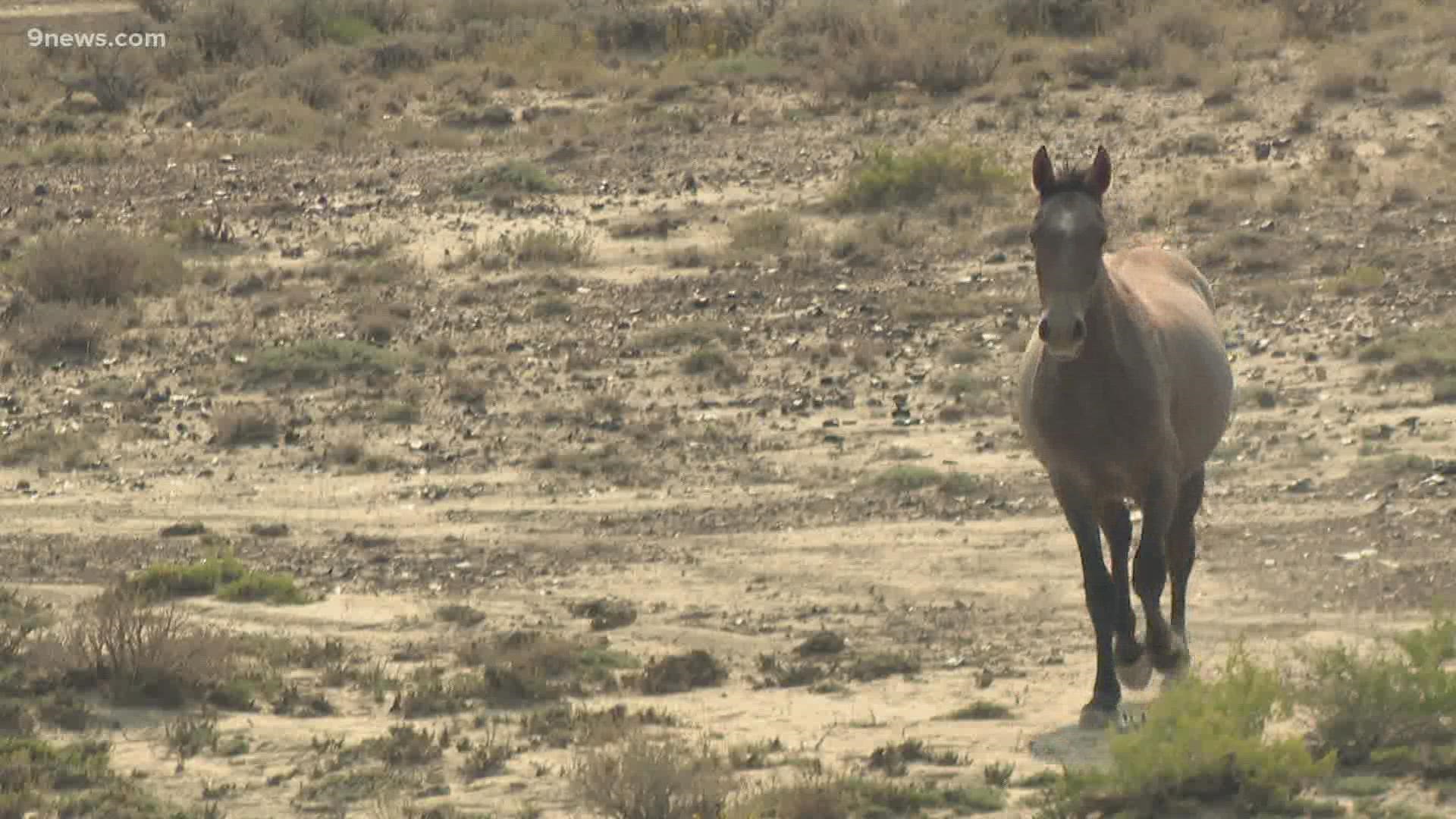Capture of more than 700 wild horses has emotions running high in northwest Colorado
BLM operations that started last month are continuing and have moved from the Sand Wash Basin to adjacent public and private lands.
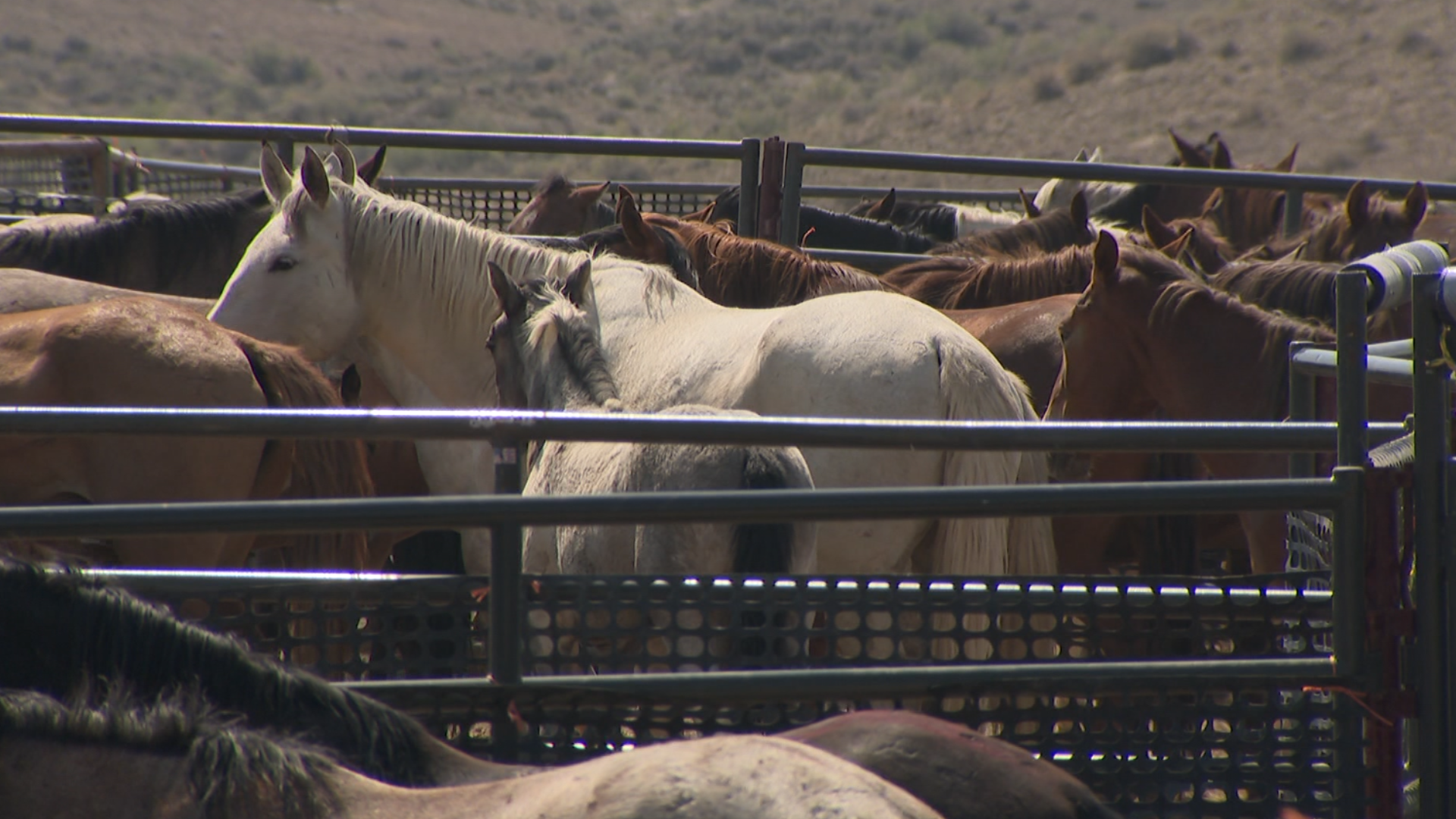
Chapter 1 A way of life
Wild horses are a part of the American West and a part of life for Craig resident Nadja Rider.
"I believe a mustang should be able to run free," Rider said. "I'm just sad. This has been a part of my life for a long time."
Rider has been coming the Sand Wash Basin, west of Craig in the northwest corner of the state, for 43 years.
"I know the horses personally," she said. "I've seen many of them grow up."
Now she has to see something she never wanted: the Bureau of Land Management using helicopters to drive wild horses into traps. Rider said these roundups are brutal, which was why she wanted to document it.
"I think it's important for people to witness what's going on and hold the BLM accountable for what they're doing," Rider said.
The BLM said the drought has left too little water and too little vegetation for food to sustain the wild horse herd of nearly 900. Contractors planned to collect more than 730 horses and leave a more sustainable number of 162.
"It's a desert, but there are areas in the basin you can go to that has really good grass," Rider said. "You can go into the washes."

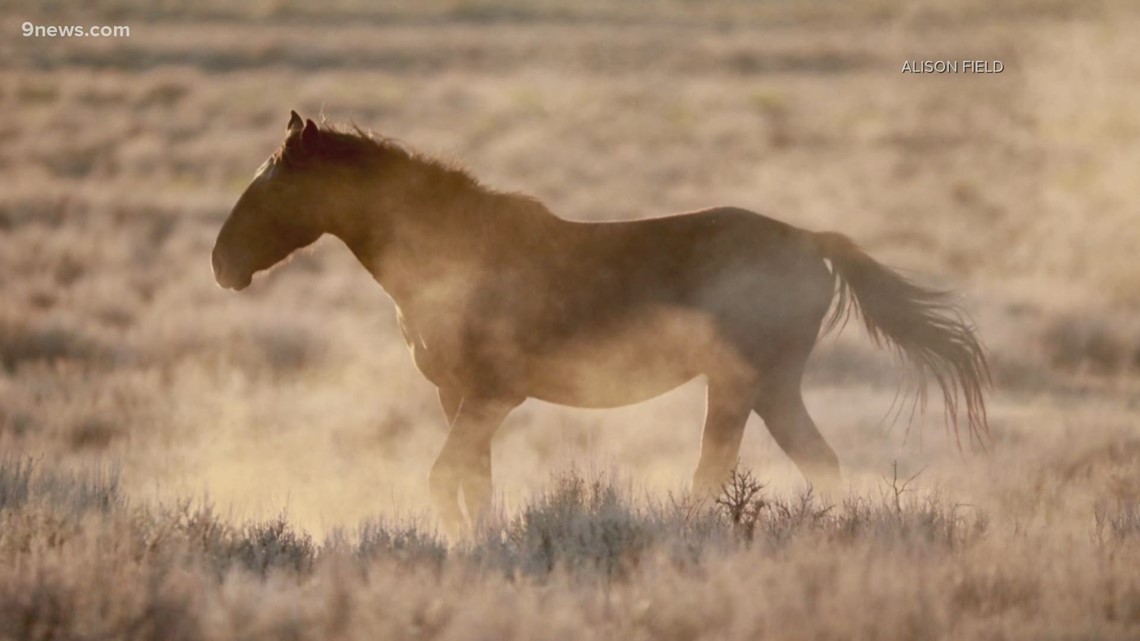
Chapter 2 Sustainability of the land
Outside of the Sand Basin on nearby private ranches, sheep eat from fields that are green. Rider said this is the actual problem.
For years, ranchers have paid the BLM grazing fees to have thousands of livestock use the same area as the wild horses, eating the same forage and drinking the same water.
"They consider it their land then, they've leased it for that long," Rider said.
Rider said she wants the livestock grazing leases to stop to save the resources for the wild horses.

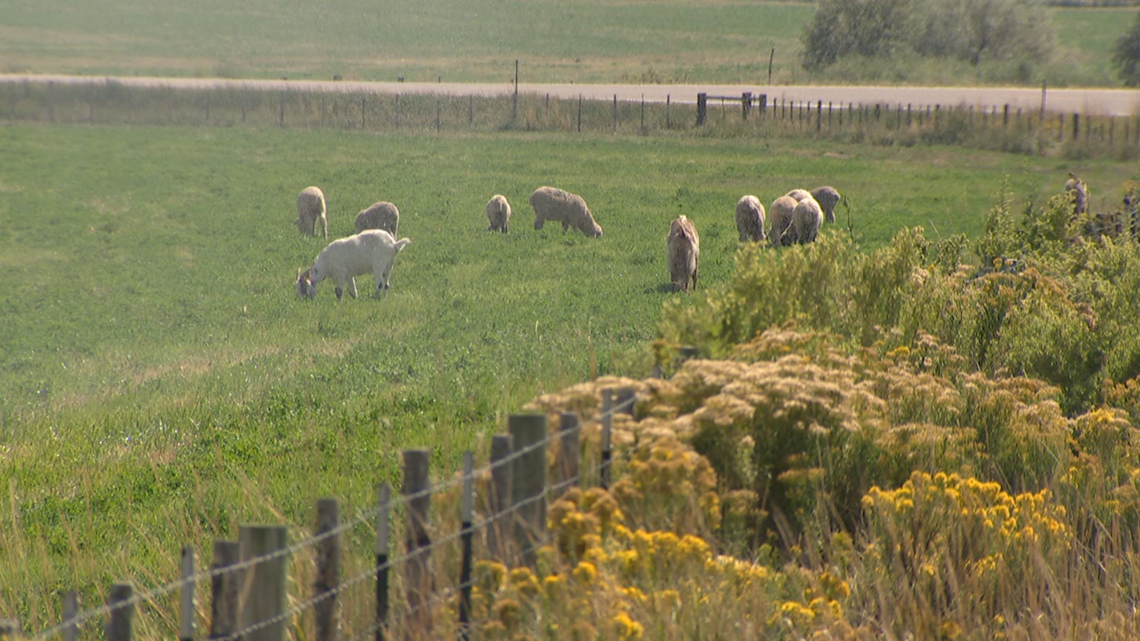
"What would you have if you removed all the livestock today? What would you have in four years? You have the double the number of horses," Callie Hendrickson said.
Hendrickson is with the Colorado Farm Bureau and a long-time rancher. She said the horses use the Sand Wash Basin 365 days a year, while ranchers have their sheep graze on the same land for only a few weeks out the year. She said ranchers need that time on public land to let the grass on their ranches recover.
"Livestock overgrazed this country 75 and 100 years ago. We learned from that," Hendrickson said. "We learned about timing, intensity and duration."
She said what's more important than feeding livestock or wild horses is the health of the soil and roots of the plants.
"Because if you abuse it and it's overgrazed, it will not be productive ground again," Hendrickson said.

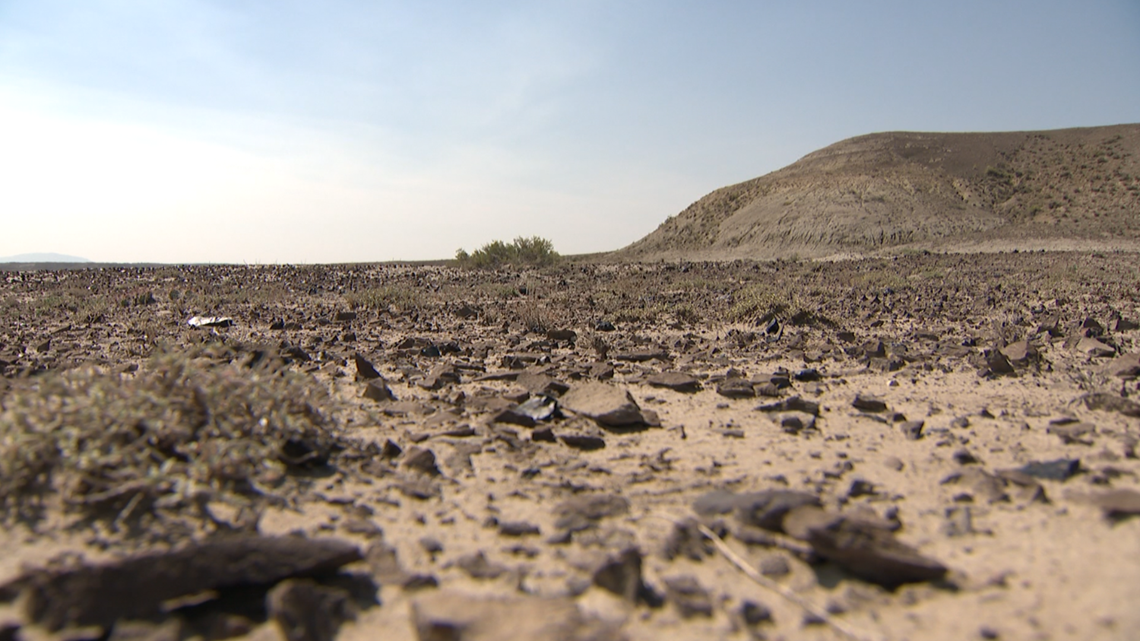
Rider said this is a normal cycle in the Sand Wash Basin and that she believes conditions are not as bad as the BLM wants people to think.
"It goes dormant when it's really, really dry, and it will come back when it rains," Rider said.
Hendrickson said that is normally true if the land is overgrazed only a few times.
"But, if you have been abusing that for multiple years, you won't have anything when the rain comes," Hendrickson said.
Hendrickson the number of sheep using the Sand Wash Bain can be managed and is managed by the BLM. But, she said the only way to manage the use of resources by the wild horses is to remove them.
"If you use it at the right time, the right duration with the right numbers, it will survive and do great. It will flourish," Hendrickson said.
Rider said she believes the wild horses should have priority.
"I would like to see them as free as possible," she said. "I don't like seeing them spend their lives in a pen."
Hendrickson said emotions have taken over and this should not be an issue of wild horses versus livestock.
"I see people crying over horses, been there, done that myself, OK," she said. "There's nothing I think of more than a horse. Nobody's crying over this land and we should be."
Chapter 3 Injuries in the roundup

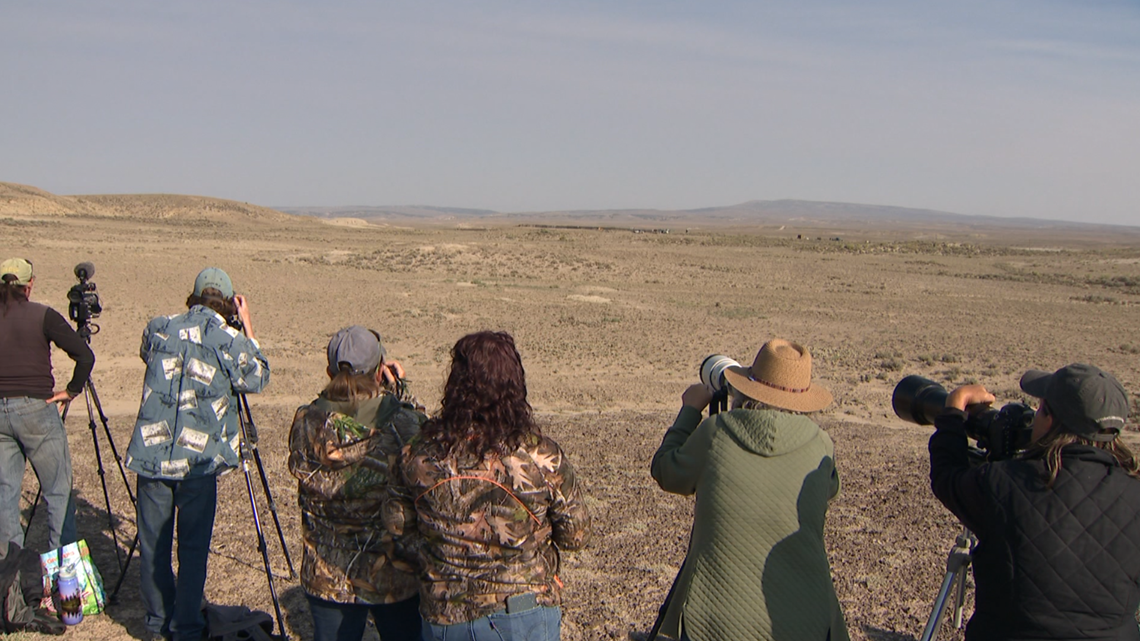
As the horse gather continued, Brian Clopp took pictures and watched closely. He is with the American Wild Horse Campaign, an advocacy and lobbying group. He has questions for the BLM's head of operations, Ben Smith.
"We notified you yesterday about this time that there is a mare with a broken leg out there. The foal was getting ahead of it," Clopp said to Smith at a briefing near the pens where the wild horses are captured.
Clopp said he shot video of a mare that he believes was injured during the gather.
"There it is shaking its head," Clopp said, pointing to his video on his laptop. "You could see that, and that's not just a little head shake. That's putting its head up into the sky and shaking its head in distress."
Clopp said that same day another horse was injured with a broken hip during the gather and had to be euthanized. The BLM said that horse and another earlier in the week had pre-existing injuries and had to be put down.
"I've done hundreds of days of gathers, and this one has been incredibly unique," Clopp said. "Things we saw yesterday, I have not seen on any gather day."
Clopp believes the BLM is breaking animal cruelty laws and its own policy called Comprehensive Animal Welfare Program, otherwise known as CAWP.

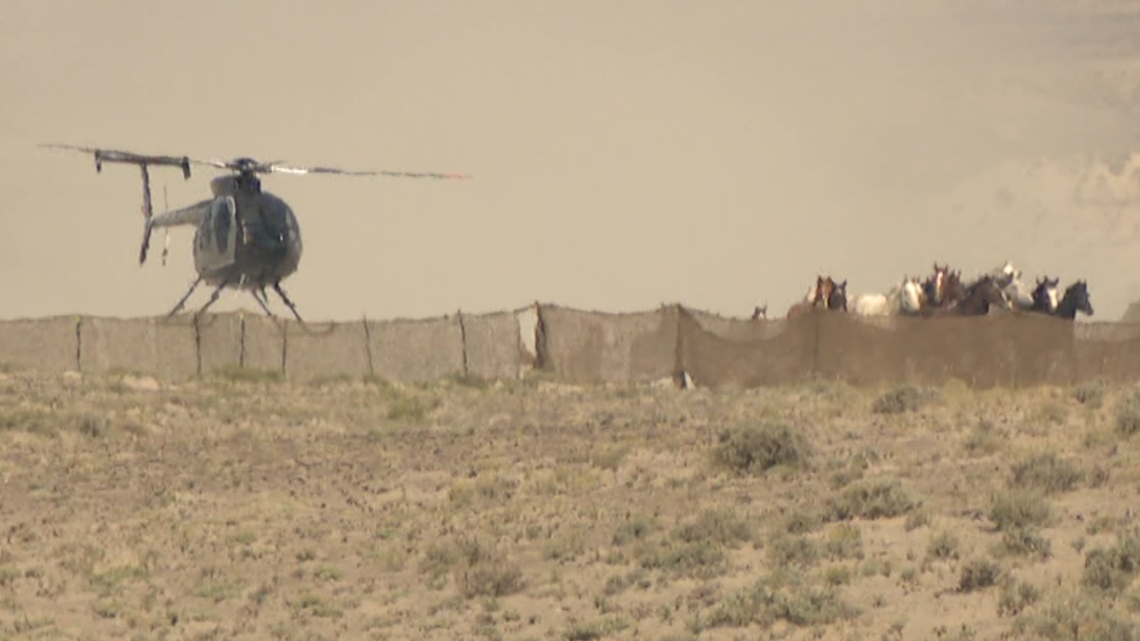
"If the CAWP says a helicopter cannot push the horses faster than the slowest horse, how are the foals falling behind, and how are mares with broken legs being left out standing alone?" Clopp said while questioning Smith at the corral.
Smith said he welcomes information about issues like this.
"I haven't seen a mare with a broken leg yet. We haven't been able to locate one," Smith said to Clopp. "I send BLM personnel out there this morning. I'm trying to do the best that I can."
Chapter 4 "I feel like I'm betraying them"
Brian Sillitoe is manager of the Little Snake Field Office for the BLM, which oversees the Sand Wash Basin. Sillitoe said the BLM wants the horses gathered as gently as possible.
"The contractor does have many things to be concerned about, and BLM is overseeing the contract to insure that these animals are gathered in a manner that is very safe for them," Sillitoe said.
At this point, Rider said she wanted to inspect the animals close up in the pens to document who has been taken.
"It's important to see if we can see the injuries," Rider said.

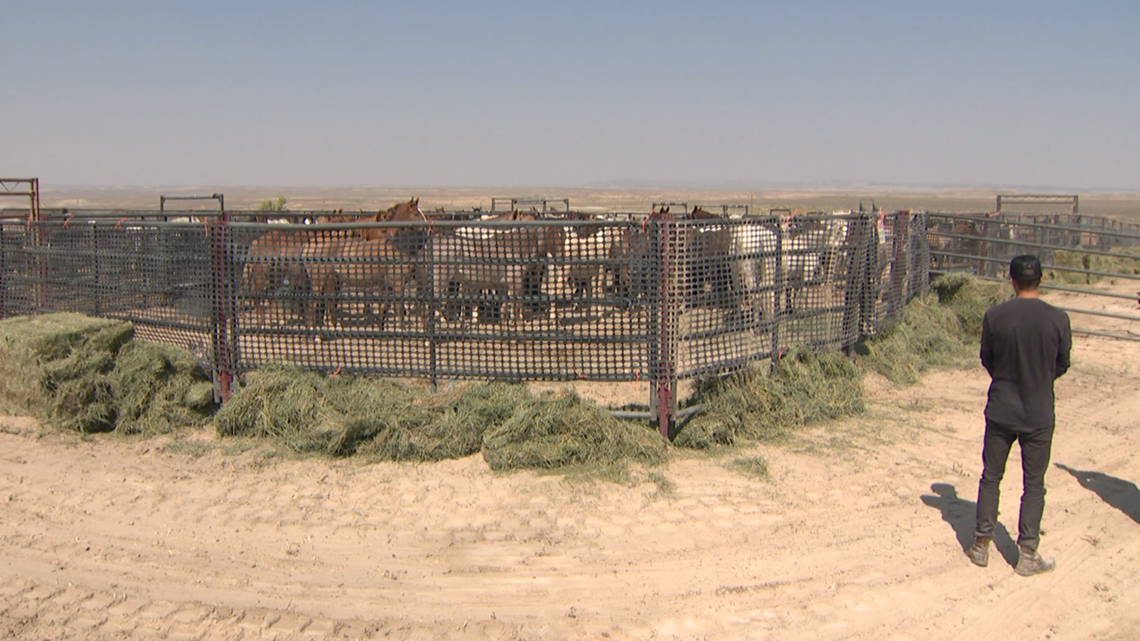
Once the horses are gathered, they will be sent to a facility in Canon City, and after a few months, they will be available for public adoption through the BLM. After an analysis of the gene pool, 50 of the captured horses will be released back into the wild to create as much diversity as possible.
As Rider stood outside the pens where hundreds of wild horses were locked up and packed tightly together, she said she felt like she was saying goodbye to her long-time friends.
"I feel like I'm betraying them," she said. "I come out here. They know my voice. The horses aren't dumb. They know me. I feel like I'm betraying them by not being able to stop this somehow."
This week, the BLM said the roundup on Sand Wash Basin was done but that horse gathering operations will continue outside the Herd Management Area (HMA) on private and public lands. The operation intends to capture more than 100 horses over the next few days.
SUGGESTED VIDEOS: Latest from 9NEWS


